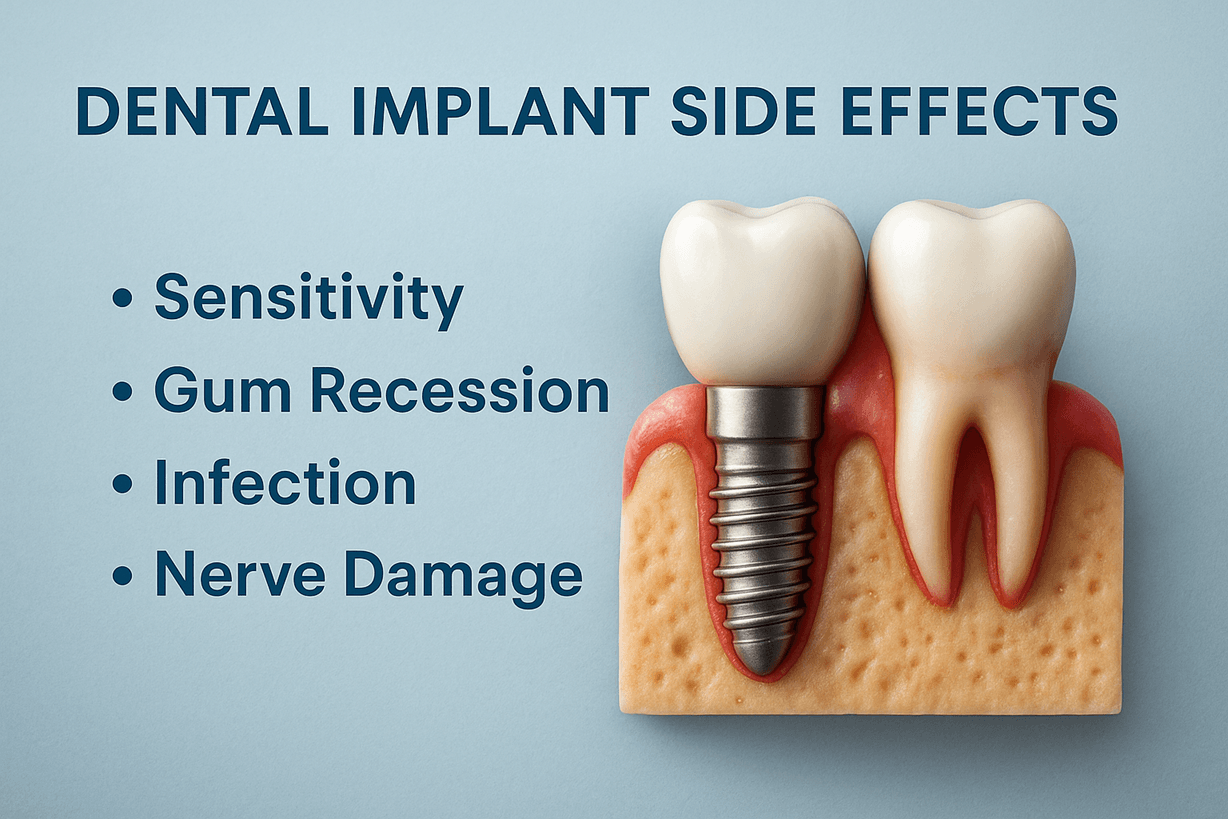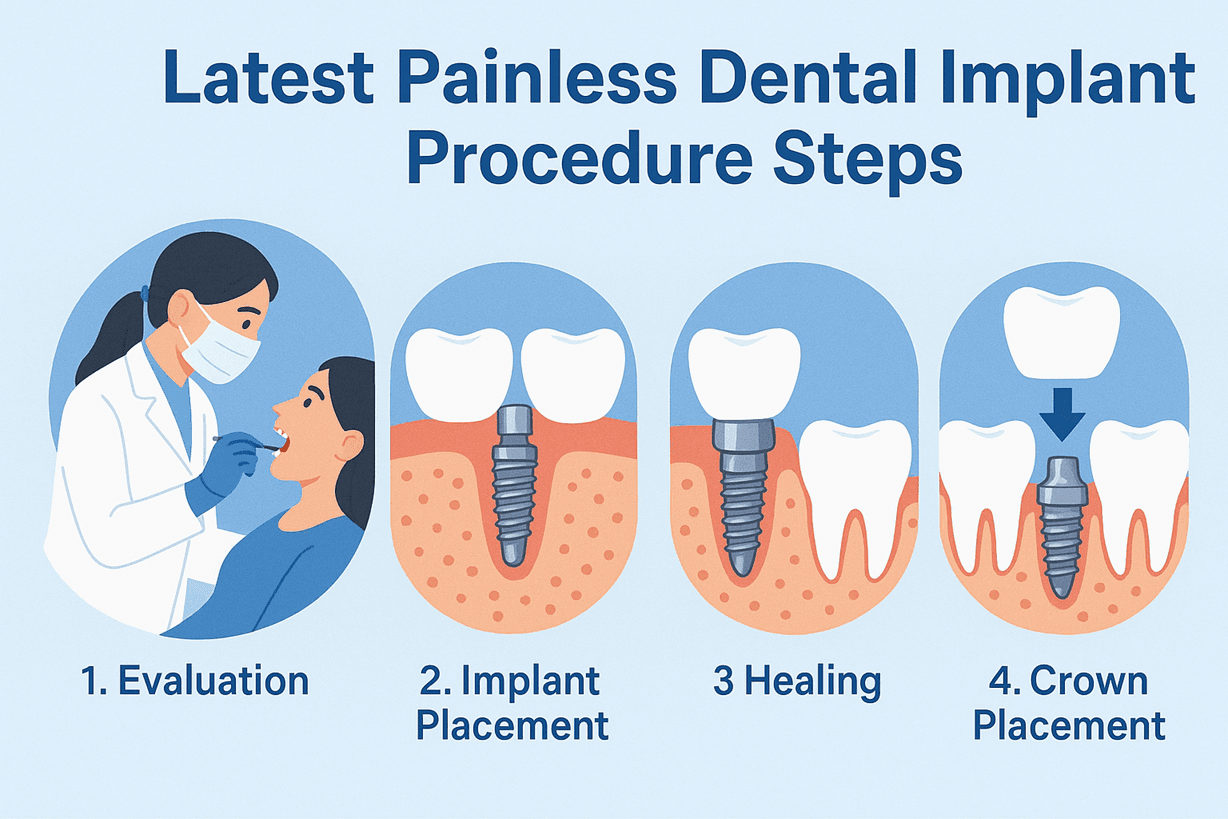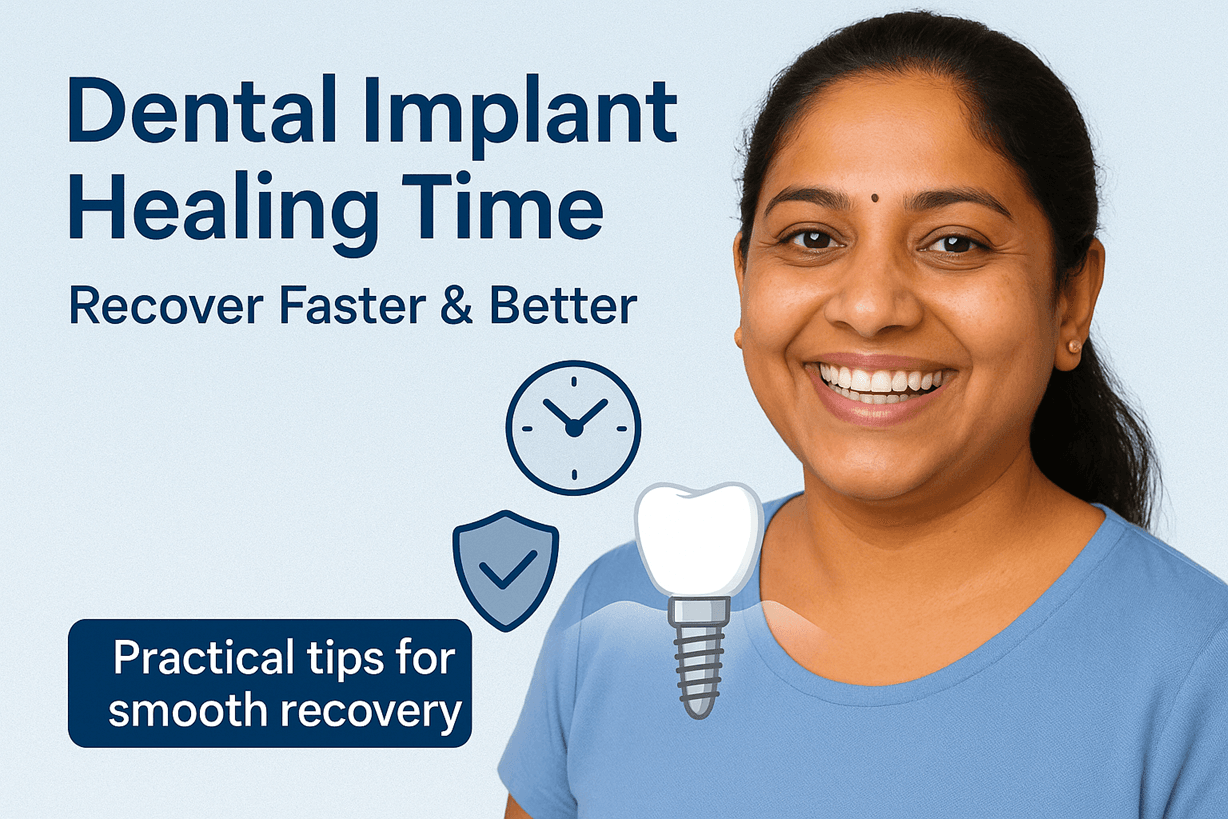Contents
- What is Tooth Decay?
- Home Remedies for Tooth Decay
- Natural Treatments for Tooth Decay
- Essential Oils for Treating Tooth Decay
- Conclusion
- Frequently Asked Questions
- 1. How to treat tooth decay at home?
- 2. How to cure tooth decay at home?
- 3. How to remove tooth decay yourself?
- 4. How to remove decayed teeth at home?
- 5. How to treat tooth decay- home remedies?
- 6. How to cure tooth decay naturally at home?
- 7. How to stop tooth decay pain at home?
- 8. How to cure tooth decay?
- 9. How to prevent tooth decay naturally?
- 10. How to get rid of tooth decay?

Are you sick of having to go to the dentist for fillings and root canals all the time?
Did you know that you may battle tooth decay naturally in the convenience of your own home?
Say goodbye to high dental costs and hello to practical home cures that help maintain the strength and health of your teeth.
We'll look at some tried-and-true strategies for preventing tooth decay with only natural components in this blog post.
Prepare to learn some surprising hints and techniques that can assist you in keeping a radiant smile!
What is Tooth Decay?
A tooth becomes damaged and eventually dies as a result of tooth decay. The accumulation of plaque on the teeth, which causes the development of cavities, is the most frequent cause of tooth decay.
If plaque isn't consistently cleaned, it will start to chip away at the enamel of the teeth. Plaque is a sticky film of bacteria that builds constantly on our teeth.
Many natural treatments help stop tooth decay. One such treatment is oil pulling, which entails 20 minutes a day of swishing oil around in your mouth.
This destroys bacteria while also assisting in plaque removal from the teeth. Another home remedy is to brush your teeth with baking soda, which has natural antibacterial properties.
You can also try using a fluoride rinse, which can help to prevent cavities from forming.
Preventing Tooth Decay
A multitude of oral health problems can result from tooth decay. The good news is that there are natural ways to prevent tooth decay and maintain the health and brilliance of your smile.
Here are some pointers to remember:
1. Eat plenty of Crunchy Fruits and Vegetables:
Fruits and veggies are essential for your mouth health. They offer your body vital nutrients while also aiding in tooth and gum cleaning. To prevent tooth decay, consume a lot of crunchy foods like apples, carrots, celery, and broccoli.
2. Use Baking Soda:
A natural cleanser that might assist in removing plaque from your teeth is baking soda. Brush your teeth with a paste made of baking soda and water two to three times per week.
3. Drink lots of Water:
Since it helps wash away food particles and germs that can lead to tooth damage, water is crucial for maintaining good oral health. To keep your mouth healthy, make sure to consume lots of water throughout the day.
4. Steer clear of Sugary Beverages:
One of the main contributors to dental decay is sugary beverages. If you must consume them, brush your teeth afterwards or gargle with water to eliminate the sugar from your teeth.
5. Give up Smoking:
One of the worst things you can do for your oral health is to smoke cigarettes. You are more likely to get oral cancer, gum disease, and tooth loss as a result.
Symptoms of Tooth Decay
Tooth decay is a common problem that can lead to several serious dental health issues.
Symptoms of tooth decay include:
Cavities:
Small holes in the teeth can become larger over time and eventually lead to tooth loss.
Tooth Sensitivity:
Pain or discomfort when eating or drinking hot, cold, or sweet foods and beverages.
Toothache:
Throbbing pain in the teeth that can be constant or come and go.
Bad Breath:
Foul-smelling breath caused by bacteria build-up in the mouth.
If you are experiencing any of these symptoms, it is important to see a dentist as soon as possible for an evaluation and treatment plan.
Home Remedies for Tooth Decay
Commercial toothpaste and mouthwashes frequently include harsh chemicals that can be damaging to your teeth and gums despite their claims to be beneficial at preventing tooth decay.
Fortunately, several natural home cures can prevent tooth decay just as well as commercial products without the drawbacks.
- One simple way to fight tooth decay is to make sure you brush your teeth twice a day with fluoride toothpaste.
- Fluoride helps to strengthen the enamel on your teeth, making them less susceptible to decay.
- It’s also important to floss daily to remove plaque and bacteria from between your teeth and around your gum line.
- Another effective home remedy for tooth decay is oil pulling. This ancient Ayurvedic practice involves swishing oil around in your mouth for 20 minutes each day.
- This helps to remove toxins from your mouth and promotes oral health.
- Coconut oil is the most popular choice for oil pulling, but sesame or olive oil can also be used.
- You can also use probiotics to fight tooth decay. Probiotics help to restore the balance of good bacteria in your mouth, which can help to prevent cavities and gum disease.
- You can find probiotic supplements at most health food stores, or you can get them from fermented foods like yoghurt, kimchi, and sauerkraut.
Natural Treatments for Tooth Decay
Tooth decay requires prompt dental attention, but natural remedies can help prevent and manage it. Here are some tips:
Good Oral Hygiene: Brush twice daily, floss once a day, and use mouthwash. Avoid sugary foods and drinks.
Baking Soda: Brush with baking soda to remove plaque and bacteria, and to whiten teeth.
Saltwater Rinse: Gargle with saltwater to reduce inflammation and kill germs.
Oil Pulling: Swish oil (like coconut oil) in your mouth for a few minutes daily to improve dental health and remove toxins.
Probiotics: Restore balance in your mouth’s microbiome to help prevent decay.
Always consult a dentist for proper diagnosis and treatment and visit regularly to monitor your dental health.
Essential Oils for Treating Tooth Decay
Several different essential oils can be used to prevent tooth decay, and each one has certain advantages of its own.
- Tea tree oil is a potent antibacterial that can aid in the destruction of the microorganisms that cause tooth decay.
- Effective at reducing pain, clove oil can also aid in bacterial eradication. Freshening breath and calming the gums are two benefits of peppermint oil.
- Mix a few drops of these oils with a carrier oil, such as coconut oil or olive oil, to utilise them.
- Brush your teeth as usual after dabbing the mixture onto your toothbrush.
- A glass of water can also be mixed with a few drops of the oil, and then you can swish it about in your mouth for a few minutes before spitting it out.
Foods to Eat to Treat Tooth Decay
When it comes to fighting tooth decay, certain foods can be particularly helpful in preventing the problem in the first place.
Here are some of the best foods to eat to treat tooth decay:
1. Cheese:
Cheese is rich in calcium, which is essential for strong teeth and bones. It also contains lactic acid, which can help keep tooth surfaces clean and free from bacteria.
2. Yoghurt:
Like cheese, yoghurt is also a good source of calcium and lactic acid. It also contains beneficial probiotic bacteria that can help fight cavities-causing microbes in the mouth.
3. Green Leafy Vegetables:
Green leafy vegetables like spinach and kale are loaded with vitamins and minerals that are essential for oral health. They also contain antioxidants that can help protect teeth from damage caused by free radicals.
4. Nuts:
Nuts are a great source of vitamin E, which is important for maintaining healthy gums. They also contain minerals like phosphorus and magnesium, which are necessary for strong teeth.
5. Seeds:
Seeds like flax seeds and chia seeds are another good source of vitamin E as well as other nutrients like zinc and copper, which can help promote oral health.
Tips for Healthy Teeth and Gums
There are many things that you can do to keep your teeth and gums healthy.
Here are some tips:
1. Brush your teeth twice a day with a fluoride toothpaste.
2. Floss your teeth every day.
3. Eat a balanced diet and limit sugary snacks and drinks.
4. Visit your dentist regularly for checkups and teeth cleanings.
5. If you smoke, quit smoking. Smoking is bad for your teeth and gums.
Conclusion
You must take good care of your teeth if you want to live a healthy lifestyle.
By employing the natural remedies mentioned above, you can avoid tooth decay and have that perfect smile.
Brushing, flossing, and routine dental visits are essential preventative steps against tooth decay.
If you keep these recommendations in mind, you can have strong, healthy teeth for a very long time!
Frequently Asked Questions
1. How to treat tooth decay at home?
Unfortunately, tooth decay cannot be completely treated at home once it has advanced. By maintaining good dental hygiene, such as using fluoride toothpaste and brushing your teeth twice a day, you can try to slow down or stop the decay process.
You can also make an effort to eat and drink less sugar. To address the decay and stop it from getting worse, it's critical to schedule an appointment with a dentist right once.
2. How to cure tooth decay at home?
It is not treatable at home. Depending on the extent of the decay, expert dental care is required, such as a filling or a root canal.
You can, though, take precautions to stop more deterioration by maintaining proper oral hygiene and reducing your intake of sugary foods and drinks.
3. How to remove tooth decay yourself?
It is not advised to attempt to treat dental decay on your own. Using tools or home cures to try to remove decay could hurt your tooth and make the disease worse.
To eradicate decay safely and effectively, it's crucial to seek professional dental care.
4. How to remove decayed teeth at home?
A decaying tooth should not be extracted at home. A dentist must perform a professional tooth extraction to ensure that the tooth is completely and safely removed and to prevent any harm to the gums or neighbouring teeth.
5. How to treat tooth decay- home remedies?
Clove oil, salt water rinses, and oil pulling are a few natural treatments that may help ease the signs of tooth decay.
However, these treatments are not a replacement for skilled dental care and may only offer transient relief. For an accurate diagnosis and treatment of tooth decay, a visit to the dentist is essential.
6. How to cure tooth decay naturally at home?
There is no natural remedy for tooth decay. Once decay has begun, it must be professionally treated by a dentist to prevent further damage to your teeth and gums.
However, you can take steps to prevent decay from occurring in the first place by practising excellent oral hygiene and limiting your intake of sugary foods and drinks.
7. How to stop tooth decay pain at home?
The discomfort associated with tooth decay can be managed at home by using over-the-counter analgesics such as acetaminophen or ibuprofen.
To assist calm the affected area, you can also try applying clove oil or a saltwater rinse. To treat the underlying source of the discomfort and stop future harm, it's crucial to visit a dentist as soon as possible.
8. How to cure tooth decay?
A dentist must provide expert care for tooth decay. Depending on the extent of the decay, a filling, crown, or root canal may be used as a treatment for tooth decay.
In some instances, the tooth may need to be extracted because of the extent of the decay.
To address the decay and stop it from getting worse, it's critical to schedule an appointment with a dentist right once.
9. How to prevent tooth decay naturally?
You can practise good oral hygiene, such as twice-daily brushing, daily flossing, and the use of fluoride toothpaste, to naturally avoid tooth decay.
You can reduce the amount of sugary meals and beverages you consume while increasing the amount of water, dairy products, and high-fiber foods you consume.
It's important to see a dentist regularly for check-ups and cleanings to maintain good oral health.
10. How to get rid of tooth decay?
A dentist must provide expert care for tooth decay. Depending on the extent of the decay, a filling, crown, or root canal may be used as a treatment for tooth decay.
In some instances, the tooth may need to be extracted because of the extent of the decay. To address the decay and stop it from getting worse, it's critical to schedule an appointment with a dentist right away.
You can practise good oral hygiene, such as twice-day tooth brushing, daily flossing, and the use of fluoride toothpaste, to stave off future tooth decay.
You can also cut back on your consumption of sugary foods and beverages and schedule routine dental checkups and cleanings.



